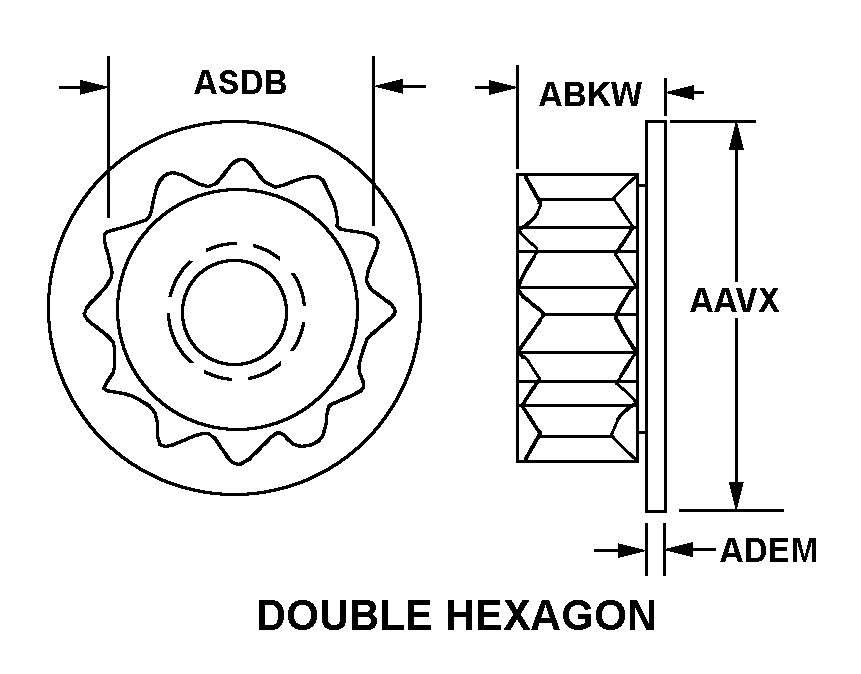
By Thomas Gerbe, Defense Information Analyst, BidLink.net
As we approach the one year anniversary of the 2011 Debt ceiling debate, the House of Representatives recently passed H.R. 4310: National Defense Authorization Act for Fiscal Year 2013. The total allotment for FY 2013 is $687 Billion, down $31.8 Billion from FY 2012. Part of this reduction was accomplished by streamlining procurement operations and cutting overhead. I.T. Resources are being consolidated, and the DOD’s reliance on outside contractors is being reduced.
One stated goal is to promote “real competition” whenever possible to drive productivity. Although the DOD issues millions of individual solicitations each year, a large amount of the defense budget goes to “prime contractors”. These are large companies including Lockheed Martin, Honeywell, Northrop Grumman, Pratt & Whitney, Raytheon and many others. They hold exclusive, long-term contracts for complex systems which last for years. Due to the nature of these systems, it is unlikely that any small business could compete for such contracts. However, DOD wants small business participation, which is accomplished by requiring large contractors to provide a “small business subcontracting plan” (FAR 19.7). This requires that large businesses subcontract a portion of the contract value to the small business community on contracts over $500,000 that have subcontracting possibilities.
According to HR 4310 section 1631, “The Governmentwide goal for participation by small business concerns shall be established at not less than 25 percent of the total value of all prime contract awards for each fiscal year and 40 percent of the total value of all subcontract awards for each fiscal year”. Small business concerns include companies owned and controlled by service-disabled veterans, socially and economically disadvantaged individuals and women, as well as businesses under a specified number of employees or annual income. Size limits vary depending on commodity class, but the threshold is usually less than 500 employees. The Government is committed to expanding participation by small businesses by increasing the percentage of contracts offered to small businesses each year. Each Government program has a small business representative who can assist companies with obtaining contracts.
Small businesses that want to compete against large companies have additional leverage. If a large company is regularly awarded contracts on a particular part and two or more small businesses submit offers on an upcoming solicitation, they can ask to have the solicitation “set-aside” exclusively for small business. According to a BidLink study in December 2011, 28% of defense contracts for fasteners are awarded as sole source, meaning that only one company submitted an offer. This is exactly what the Government is trying to avoid.
ONE BIG BOLT
For Fastener Journal readers, I always like to find a recent order for a part that might be interesting. This month we will cover a part sold to DLA Aviation by Columbia Nut and Bolt, LLC (CAGE code 51792). The company is a large business with a reported 700 employees earning $20,000,000 annually. Columbia nut and bolt, based in Moonachie, NJ has a number of long-term contracts that provide a regular flow of business from the military.

This one is a prevailing torque, double hexagon, self-locking nut made from cobalt alloy. It has a height of 0.675 inches and an outside diameter of 0.950″. It has a surface treatment in compliance with MIL-C-8837 TY 2 and a dry film lubricant. The bolt is used on the Apache AH-64, and AH-64-D Longbow helicopter, and sells to DOD for a whopping $52.24 ea. This part was ordered using long-term contract SPM5AZ-08-D-0022, which the company won on July 29, 2008 and extends through July 2013. There was only one competing bid. The most recent delivery order was on May 10, 2012 for 303 units totalling $15,828.72. The Defense Department projects that it will purchase 4,691 units in 2012 and almost the same amount in 2013.
CONTRACT BUNDLING
It is a common practice for the Government to bundle lists of items into a single contract. Although bundling can potentially reduce costs or improve performance for federal agencies, it can also limit opportunities for small businesses to receive federal prime contracts. As a result, there have been a number of initiatives to limit contract bundling including the Small Business Act (P.L. 111-240) as well as a number of bills from the 112th congress. These initiatives include expanding the power of SBA to work with contracting agencies to restructure bundled requirements.
Even if your shop cannot produce a 1″ diameter double hex bolt, you may find other opportunities that are part of a bundled requirement. If you do, try contacting the buyer and locating the small business representative for that particular agency, and ask them if the part can be ordered separately. The SBA has increasing power and can be surprisingly helpful in changing requirements to support small business.
BidLink.net is a provider of defense industry information for contractors worldwide. This data includes millions of defense contracts, procurement history, part numbers and vendor details. This unique combination of resources allows BidLink to monitor and extract important information for the defense contracting industry. BidLink.net, based in Washington, D.C., provides bid consolidation, searching and notification services, as well as part number (NSN) lookup to many military activities and thousands of private companies around the world. Try our new full-text Government document search engine.
If you would like to see a video demonstrating how we found this part, and how you might find other parts of interest, scan the code below using your cell phone or tablet. Already reading this on a tablet? Then click here.
Comments? Send them to news@bidlink.net.
This article was written exclusively for “Fastener Journal” magazine.

Tweet
